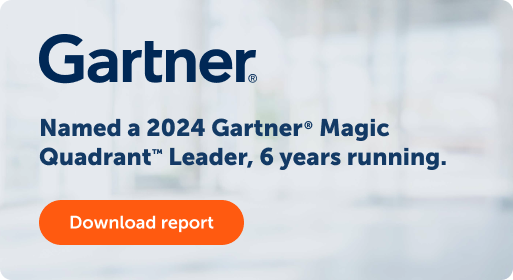- Products
Automate any process, anywhere Streamline complex, mission-critical workflows with the Agentic Process Automation System. Explore the Platform Explore the Platform
- AI System
- Build AI Agents
Automate advanced tasks with AI Agent Studio.
- Streamline workflows
Rapidly design and deploy with Automator AI.
- Process complex documents
Extract and organize data with Document Automation.
- Discover opportunities
Identify inefficiencies with Process Discovery.
- Orchestrate automations
Centralize initiatives with Automation Workspace.
- Build AI Agents
- Automation System
- Govern programs
Establish frameworks and oversight with CoE Manager.
- Automate from any app
Get AI-powered assistance with Automation Co-Pilot.
- Speed workflows with cloud
Power instant data exchange with serverless Automation Anywhere Cloud Service
- Unify systems
Connect applications and workflows with seamless integrations.
- Govern programs
- View all Products
-
- Solutions
Featured Solutions
 Google Cloud Google Cloud and Automation Anywhere empower enterprises to fast-track their AI + Automation journey. Google Cloud
Google Cloud Google Cloud and Automation Anywhere empower enterprises to fast-track their AI + Automation journey. Google Cloud Amazon Web Services Streamline workflows, reduce costs, and make automating even easier when you combine the Agentic Process Automation System with AWS Amazon Web Services
Amazon Web Services Streamline workflows, reduce costs, and make automating even easier when you combine the Agentic Process Automation System with AWS Amazon Web Services- By Industry
- By Function
- By Technology
- View all AI Solutions
-
- Resources
Get Community Edition: Start automating instantly with FREE access to full-featured automation with Cloud Community Edition.
Featured
 Named a 2024 Gartner® Magic Quadrant™ Leader for Automation. Celebrating Six Years of Recognition as a Leader. Download report Download report
Named a 2024 Gartner® Magic Quadrant™ Leader for Automation. Celebrating Six Years of Recognition as a Leader. Download report Download report - Customers
New & improved certifications
 Give yourself a competitive advantage with Automation Anywhere's industry-recognized certifications.Explore Certifications Explore Certifications
Give yourself a competitive advantage with Automation Anywhere's industry-recognized certifications.Explore Certifications Explore Certifications - Company
Get in touch with us Get help, know more, learn, ask questions, or just say Hi! Contact Us Contact Us
- Get To Know Us
- Announcements
- Society
-
Blog
Process Discovery vs. Task Mining

As process analysis technology expands across organizations, it evolves in various forms and introduces new terms, which are often confusing. In one of the previous blogs, I discussed the difference between process mining and process discovery technology. Now, let’s look at process discovery and task mining.
The theory and practice
First of all, the term “process discovery,” used in a different context, might mean different things.
In theory, according to Wil M.P. van der Aalst, process mining is an overarching term defining the approach to automatic process analysis, which can do three things:
- Process discovery—creating a new, optimized map of what a process should look like.
- Process conformance—comparing an actual process to an ideal process to see how it measures up or conforms.
- Process enhancement—enhancing the understanding of an existing model with new information about performance, cost, or other factors.
The term process discovery defines a type of solution, which captures user interactions with enterprise applications and reconstructs the business workflows as they are executed within the organization. In contrast with process mining solutions that use system logs to collect the process data, process discovery solutions use automatic recording capabilities to capture user actions through the user interface. That is why the practical meaning of process discovery solution contradicts the theoretical meaning of process discovery as a subset of process mining capabilities.
Task mining and process discovery—different or the same?
What is task mining? From the technology perspective, task mining is similar to process discovery. So why are task mining and process discovery considered not the same? The difference reflects the various purposes for the development and use of technology.
The task mining term is used mainly by process mining vendors, who realized that while process mining solutions can capture back-end information from the logs, they miss the front-end data from the user interactions. To fill this gap and provide a complete process view, many of them have added the user interface capture capabilities and called them “task mining” to align the naming with core process mining. As a result, the purpose of task mining as well as process mining is to map processes, identify and address process inefficiencies, and improve overall productivity. The process discovery term is used mainly by Robotic Process Automation (RPA) vendors when referring to a solution for automating manual process discovery. Every automation project starts with the process documentation, analysis, and finding opportunities for automation.
According to an Automation Anywhere webinar survey, more than 80% of organizations perform this analysis manually through interviews and surveys, which takes up to 70% of efforts spent on an automation project. Process discovery technology can accelerate automation, saving time and effort. It reflects its place as the first step of process automation for identifying and analyzing automation opportunities.
Even though task mining and process discovery solutions use similar technologies, they are designed for different purposes, and that results in different user experiences and outcomes. While task mining focuses on process optimization, process discovery leads to process automation.
Providing an end-to-end experience
The Automation Anywhere Process Discovery is an example of a process discovery solution. It provides an end-to-end experience, recording user activities, discovering and analyzing business processes, and generating RPA bot blueprints to automate the processes—all in one platform.
With capabilities such as the auto-generation of RPA bot prototypes and convenient tools for merging recordings and identifying the “happy path,” as well as creating process documentation, Discovery Bot streamlines and accelerates the entire automation journey.
Accelerate Your Automation with Our Discovery.
About Semyon Sergunin
With a background in software development, B2B marketing, and sales, Semyon Sergunin has worked in automation technology for more than 15 years. He drives the global adoption of intelligent automation solutions, including Document Automation and Discovery Bot.
Subscribe via Email View All Posts LinkedInGet to know the Agentic Process Automation System.

For Students & Developers
Start automating instantly with FREE access to full-featured automation with Cloud Community Edition.



